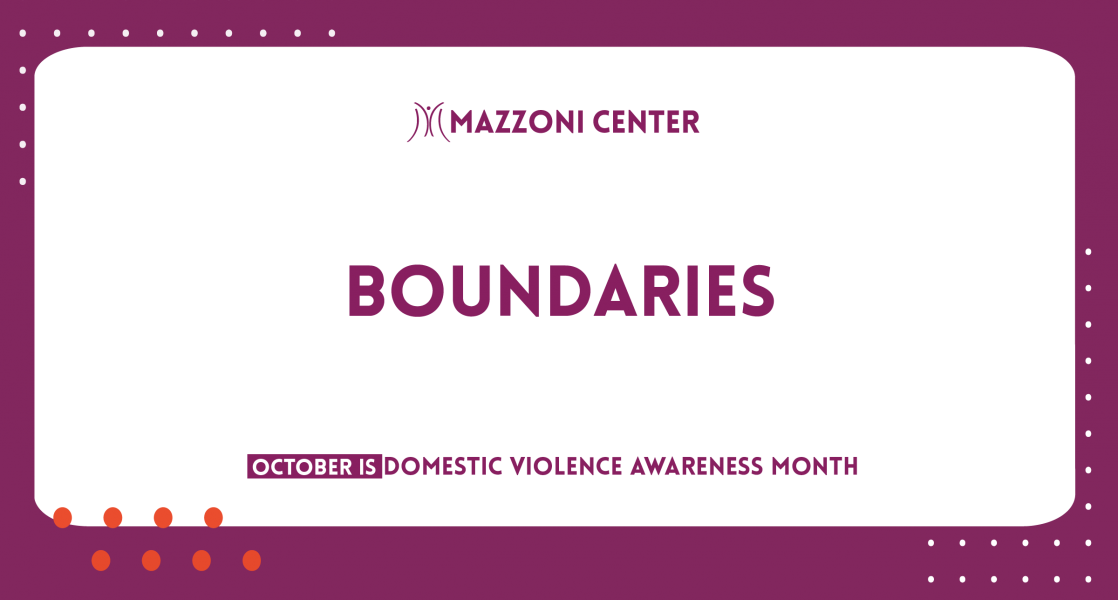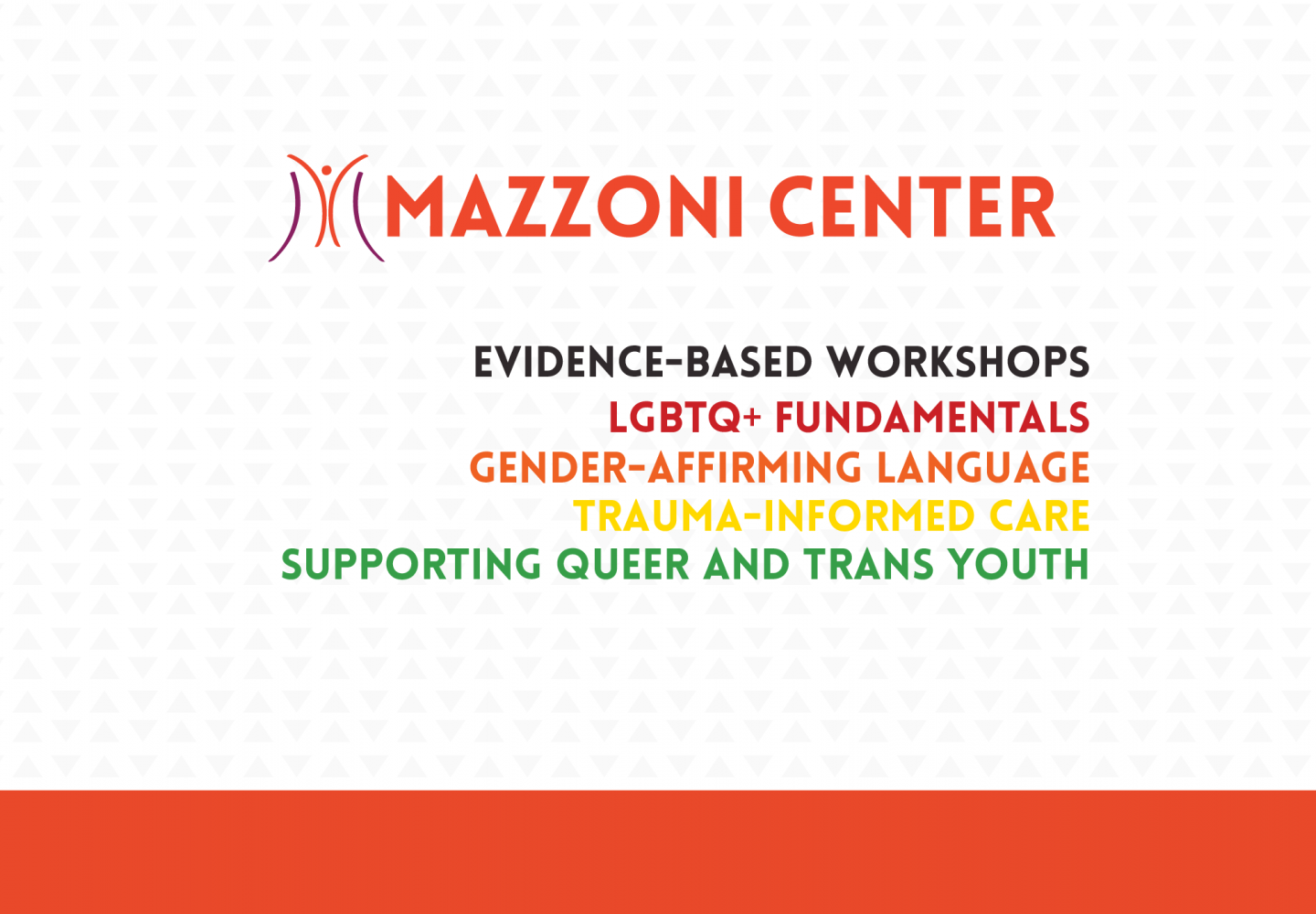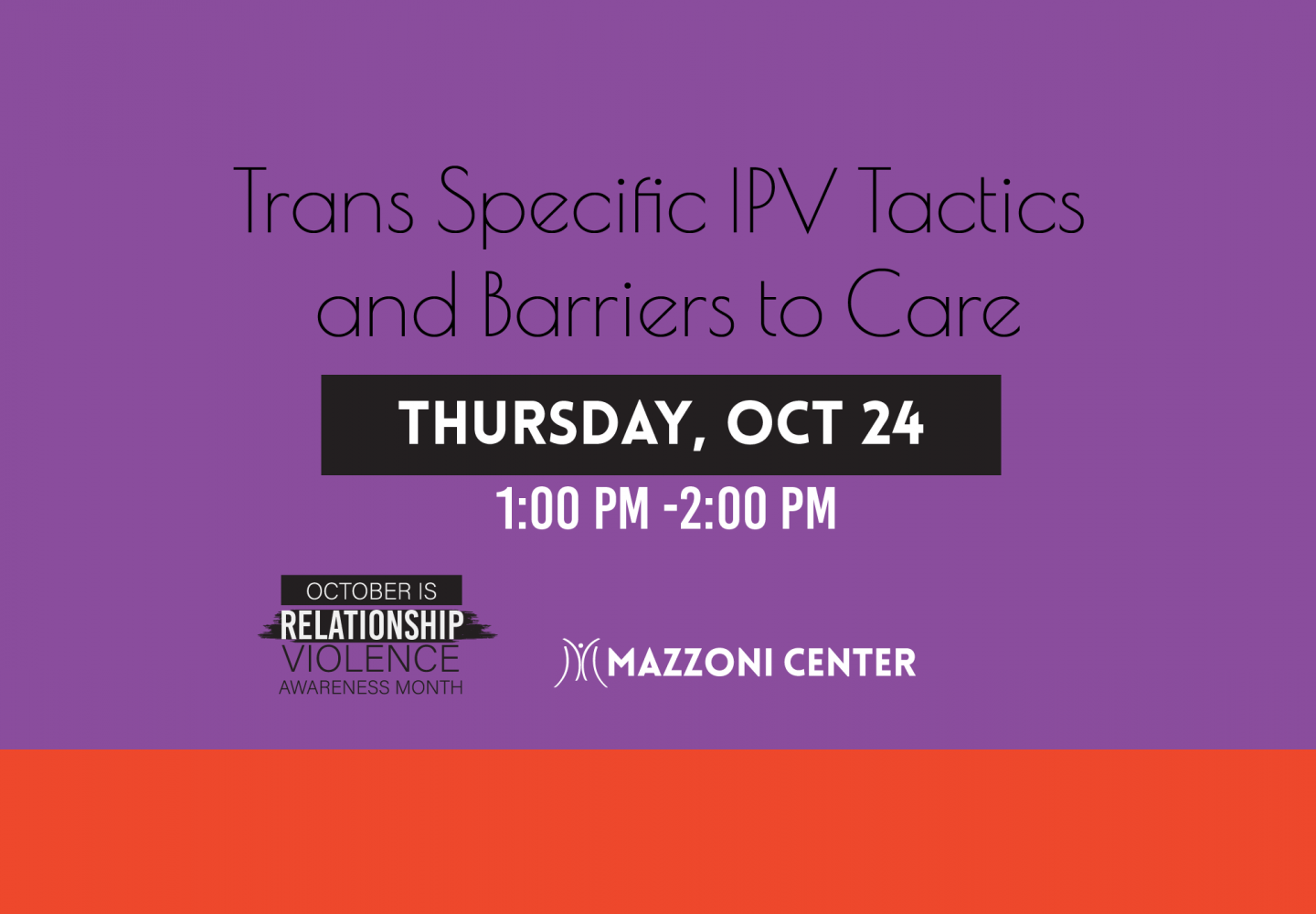Boundaries in Relationships | DVAM
Boundaries in Relationships | DVAM

This month, join Mazzoni Center on Mondays for Domestic Violence Awareness Month blog posts. We will be talking through how domestic violence affects the LGBTQ+ community, relationship red and green flags, boundaries, and how to support survivors. Our posts were created to both further awareness of DV and to help folks think through what a healthy relationship looks like to them, all through an LGBTQ+ affirming lens. If you have experienced DV, or support someone who has, there are resources available for you. Call the 24-hour, free and confidential Philadelphia Domestic Violence Hotline at 1-866-723-3014 for crisis intervention, safety planning, resources, and referrals.
Welcome to our third installment of Domestic Violence Awareness Month blog posts! This week we are talking all about boundaries in the context of relationships. Boundaries are just limits- they show the extent of behavior you can engage in or feel comfortable with. Having healthy boundaries and being able to articulate them can help a partner know how best to support and interact with you during a relationship. Remember, boundaries are about you and what you feel comfortable doing and engaging in- you cannot put limits on other people’s behaviors. Here are some tips and tricks for creating boundaries that work for you:
1. Consider what you need and want in a relationship. What makes you feel comfortable? What do you want to keep private? What makes you feel safe? Perhaps you’re someone that needs a lot of alone time or designated time to do non-relationship things like hang out with friends, engage in hobbies, or just relax. A boundary could be only spending 3 days out of the week with a romantic partner. Make a list of things you need to make yourself feel happy, safe, and secure and use that as a guide for boundaries.
2. Observe how you feel in your day-to-day life when you interact with your partner, especially if you are unsure where to start with setting boundaries. What do you notice? When do you feel your best? When do you feel overextended, overwhelmed, or unsafe? Maybe you feel great when you make out with a date but doing other things does not feel as good. You could have a boundary around only making out, not having sex.
3. Communicate your boundaries to the people in your life! Folks do not know until you tell them, and by communicating your boundaries clearly you help people know how you want to be respected. When you tell your partner your boundaries, ask them for theirs too! Sometimes folks will not know what their boundaries are because they have not explored what boundaries mean to them or have not been given the opportunity to have healthy boundaries previously.
Give them an opportunity to explore theirs as well and know it might take some time for them to figure out what is right.
4. Write down your boundaries. If you are someone that has trouble remembering them or sticking to them when times are tough, a visual reminder may be helpful. It can also be helpful to write the “why” behind the boundaries. You could write that you only see a partner 3 days out of the week because alone time rejuvenates you and you really want to commit time to your hobbies. When you feel yourself getting overextended or breaking your own boundaries, you can revisit the “why” to hopefully remind yourself that it is okay to have limits and your boundaries support your wellbeing.
5. Boundaries can change over time! It is okay to set a boundary and realize it was not right, or to reevaluate them or experiment as needed. Your needs will not be the same forever. Keep in mind, though, that if someone is pressuring you to change boundaries that do work for you and help you feel good in a relationship, that is not cool.
6. Remember: it is not your fault if someone is breaking your boundaries. By discussing boundaries, we do not want to imply that boundary violations or any type of IPV (Intimate Partner Violence) is a survivor’s fault: it is not. You deserve to have your boundaries respected and honored, and if someone is breaking those, it is not your fault. It might be a sign to seek resources or help navigating the relationship- do not hesitate to call the Philadelphia Domestic Violence Hotline at 1-866-723-3014 to talk through your situation.
Those are our hot tips for creating boundaries! While we talked about boundaries in the context of romantic relationships in this post, boundaries can and should apply to so much more than that. You can think about boundaries with friendships, work, your family, and even yourself! It can be great to consider all sorts of boundaries, so you do not overextend yourself.
LGBTQ+ Survivors: You are not alone. If you have experienced interpersonal violence and need assistance, call the 24-hour, free and confidential Philadelphia Domestic Violence Hotline at 1-866-723-3014 for crisis intervention, safety planning, resources, and referrals.
This project was supported by 2017-UD-AX-0011 awarded by the Office on Violence Against Women, U.S. Department of Justice. The opinions, findings, conclusions, and recommendations expressed in this document are those of the author and do not necessarily reflect the views of the U.S. Department of Justice, Office on Violence Against Women.


